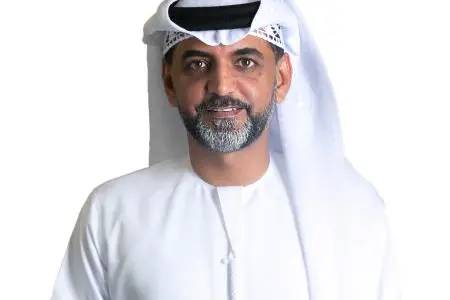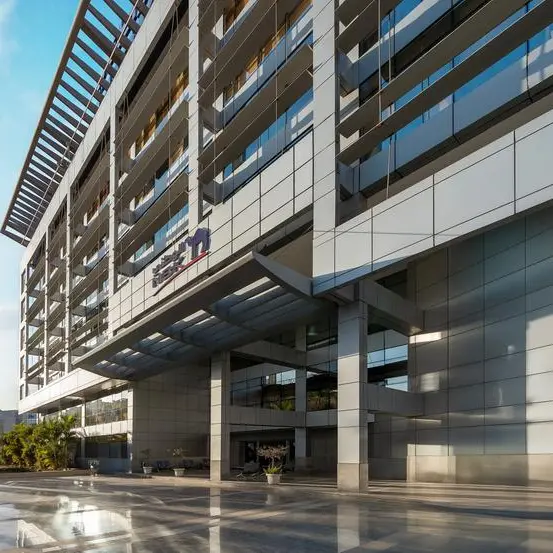PHOTO
Government incentives driving investments to major cities in the MENA region
Dubai: At Cityscape 2021, the International Real Estate Investment and Development Event at the brand-new Dubai Exhibition Centre on the Expo 2020 grounds, this week has seen the opportunity for regional and international real estate experts to come together to network, create joint ventures and discuss the future of real estate over the four-day networking exhibition and conference. This year, the event featured a line-up of specialised networking events providing investors and developers with the opportunity to interact face-to-face.
Among these have been the Cityscape Intelligence Talks, a range of dynamic discussions at which hosted numerous experts discussed the future trends and issues facing the local and global real estate market. One such session featured local entrepreneur and property expert, Ismail Al Hammadi, the CEO of Al Ruwad Real Estate in Dubai, who took a deep dive into what cities MENA real estate investors are looking at in 2021 and beyond.
Al Hammadi noted that 2021 has been a year of recovery for the real estate investment field in a majority of countries around the world, saying that the industry learned a lot and was able to swiftly adapt to market trends during 2020’s pandemic measures. “Resilience and agility have emerged as the key prospects for success and investors are now looking for new opportunities in countries that have managed to pass through the pandemic and its affects faster than other countries. Due to the foresight of the government, the UAE has led the world in COVID testing and vaccinations, and this fast recovery is building a solid ground for development and growth on a healthy pace in the real estate sector.”
Al Hammadi went on to share his insights on the main promising cities in the region which are being looked at by investors, including Dubai, Abu Dhabi, Cairo, Riyadh and Muscat, explaining that while property goes through boom and bust cycles like every other investment, it remains a stable asset.
He said, “Dubai ranks as the 11th most popular city globally for residence-by-investment programmes, and EXPO 2020 is playing a major role in both attracting attention and driving impressive investment to the UAE. The growth of the monthly sales transactions and their values leading up to EXPO 2020 has been exceptional, but none as significant as September 2021, which not only had the highest value of real estate sold in a single month since December 2013, but also crossed the AED 117 billion mark with 48,490 sales transactions for the year so far. A major contributor to this amazing growth is a diverse and strong economy and flexible rules and regulations.”
Al Hammadi continued, “Abu Dhabi was ranked third best place in the world to purchase a holiday home according to research carried out by Compare the Market, while Dubai came fourth. This research analysed important location factors, including weather, affordability, number of restaurants, cost of living and crime levels. Low lending rates, improving business conditions, flexible residency rules and a relaxation of administrative procedures have helped to stoke demand for property development projects in the capital. At a city level, residential sale prices in Abu Dhabi were up by around 4% year-on-year in Q3 2021. With the off-plan market beginning to attract investors again, developers have started to launch projects with attractive payment plans in place to capitalise on a surge in activity so over the remainder of 2021, we expect demand for quality villa stock to underpin the recovery in sales prices.”
The discussion revealed that the situation is similar in Saudi Arabia, where a number of companies are expected to set up regional headquarters in Riyadh within the next year, according to the President of the Royal Commission for Riyadh City, in a move that will bring more investment with demand strongest from the government and banking sectors targeting large floor spaces in northern Riyadh. In addition, the delivery of residential units in both Riyadh and Jeddah continued apace as the government made further progress in its aim to increase the percentage of Saudi families owning homes to 70% by 2030. In itself, this will help drive the residential sector market for the foreseeable future.
In Cairo, the new phase of Cairo Festival City has been completed, while local businesses continue to show a preference for offices that have been converted from residential buildings, as well as smaller fitted-out units to cut back on operational and capital expenditure. Meanwhile, entities that own and occupy larger offices and take a hybrid approach to work are now considering sub-leasing unused spaces to generate additional revenue. Flexible operators are emerging – especially local ones who are competing to introduce high-quality co-working spaces with unique concepts, including offerings that add value like F&B, lifestyle & wellness.
Sales activity in Oman’s property market has rebounded strongly this year following last year’s pandemic-induced slowdown, as the latest statistics released by the National Centre for Statistics and Information showed signs of a strong rebound in the sultanate’s real-estate market, signaling the sector’s resilience amid easing pandemic restrictions. Real-estate transactions this year, with the majority being in or near Muscat, have rebounded to the pre-pandemic levels.
Taking an overview of the region as a whole, Al Hammadi noted that the market itself is shifting, with international businesses taking a more flexible approach to staff returning to the office, which has led to some establishments consolidating or even re-purposing their premises. In Dubai, he said, enquiries from technology and e-commerce companies have been strongest as they look to expand their footprints to accommodate their growing workforces.
The five cities examined all shared a similar emphasis on the investment potential of residential, office space, retail, logistics and industrial, hospitality, healthcare and undeveloped land plots for self-build projects.
Al Hammadi concluded by saying, “The cities we have looked at today have the advantage of providing strong government support for sustainable and profitable growth, as they are fully aware of the need to ensure a reasonable amount of flexibility in the regulations relating to the marketplace, ensuring a variety of suitable but realistic financing options, while not undermining, or outpricing, the local population. Despite their many superficial differences, these cities are offering a healthy infrastructure, safety, degrees of luxury and sustainability throughout their respective markets. Most investors, whether working, vacationing or even retired to these locations, want that ‘15-minute’ lifestyle - if they can get it. They want walkable convenience, amenities and authentic properties that allow them to live fuller lives without necessarily having to get into a car and transition from one segment of their life to another – and they want to be able to get rental income when the property is vacant.”
The Cityscape event ran from Sunday, 7th November to Thursday, 11th November 2021 at EXPO 2020 Dubai. Due to safety measures around the current situation, the fair was a hybrid event, taking place on-site and online at the same time.
-Ends-
For more information, please contact:
Wael Sarieddine
Email: wael.sarieddine@viola.ae
© Press Release 2021
Disclaimer: The contents of this press release was provided from an external third party provider. This website is not responsible for, and does not control, such external content. This content is provided on an “as is” and “as available” basis and has not been edited in any way. Neither this website nor our affiliates guarantee the accuracy of or endorse the views or opinions expressed in this press release.
The press release is provided for informational purposes only. The content does not provide tax, legal or investment advice or opinion regarding the suitability, value or profitability of any particular security, portfolio or investment strategy. Neither this website nor our affiliates shall be liable for any errors or inaccuracies in the content, or for any actions taken by you in reliance thereon. You expressly agree that your use of the information within this article is at your sole risk.
To the fullest extent permitted by applicable law, this website, its parent company, its subsidiaries, its affiliates and the respective shareholders, directors, officers, employees, agents, advertisers, content providers and licensors will not be liable (jointly or severally) to you for any direct, indirect, consequential, special, incidental, punitive or exemplary damages, including without limitation, lost profits, lost savings and lost revenues, whether in negligence, tort, contract or any other theory of liability, even if the parties have been advised of the possibility or could have foreseen any such damages.




















